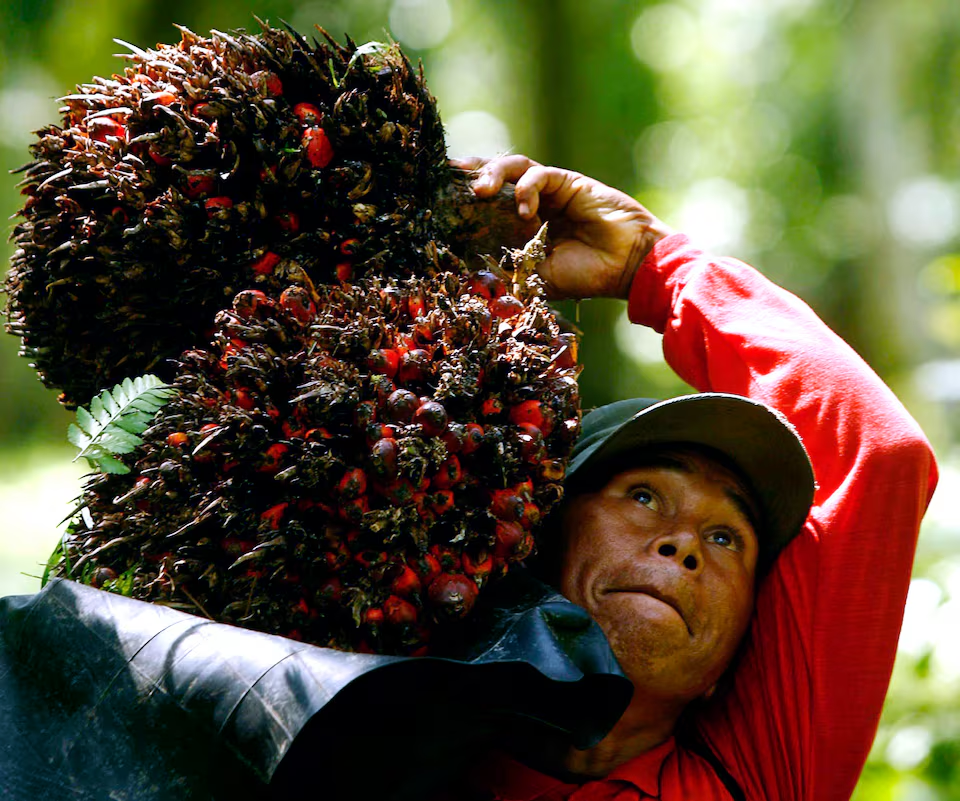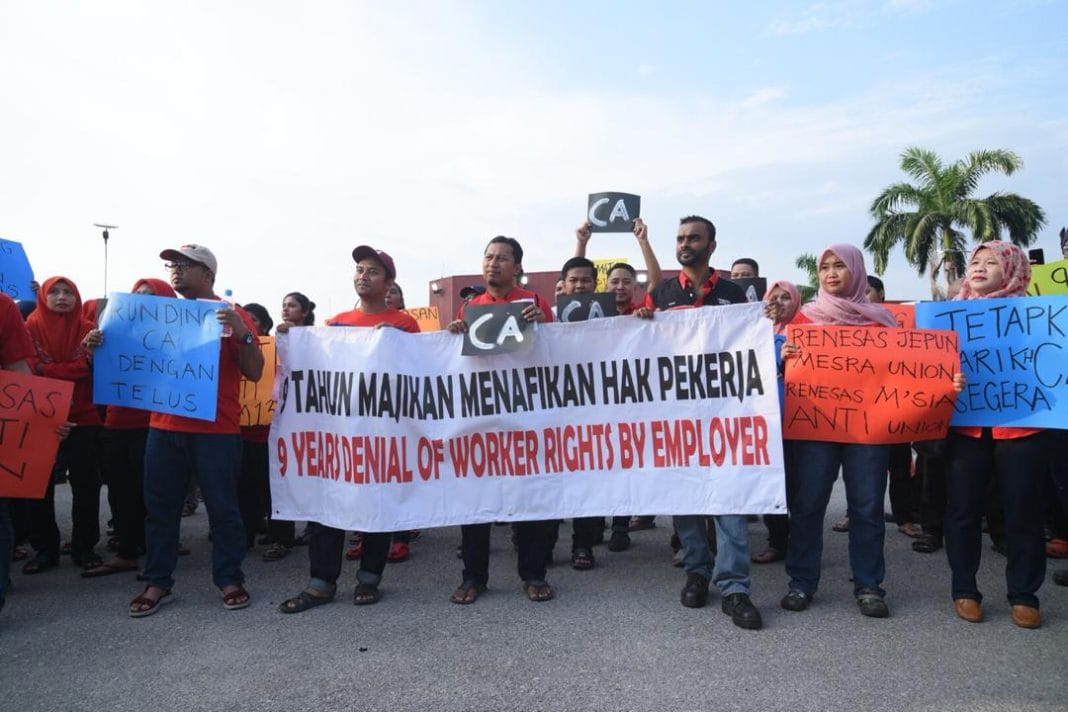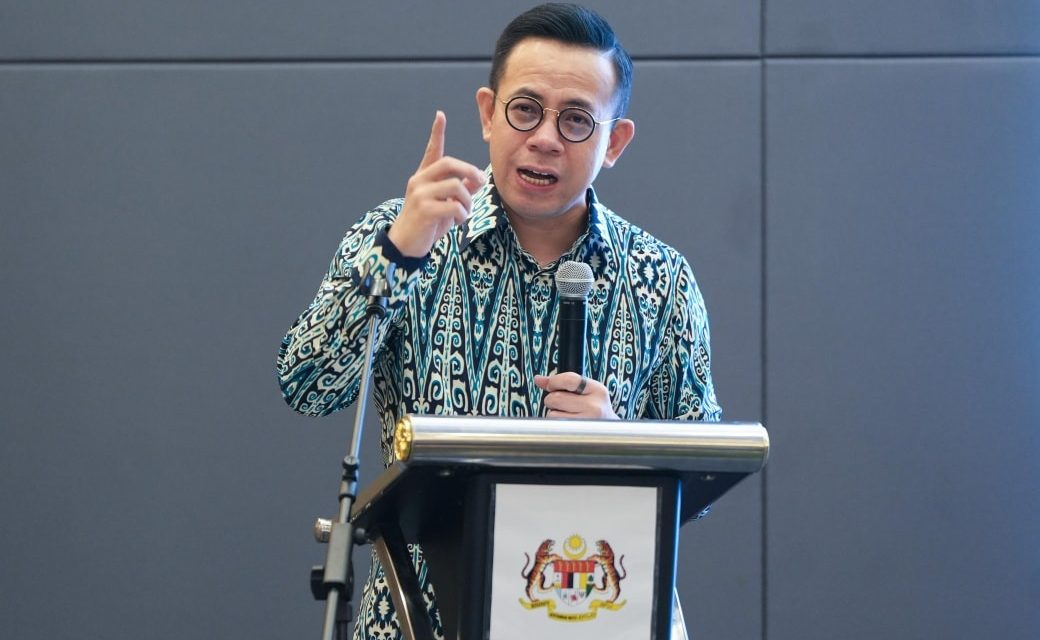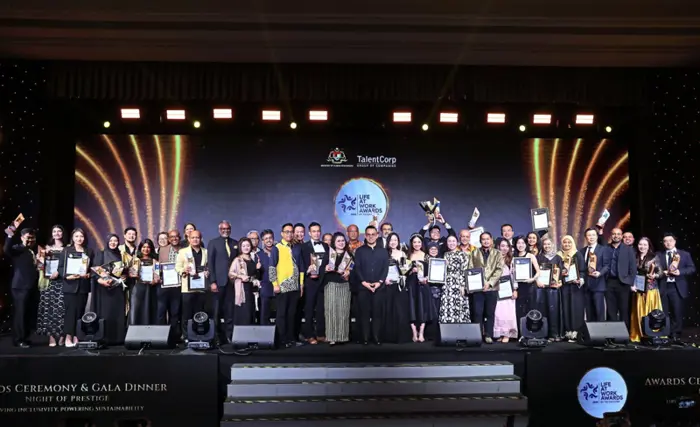
August 25 – In 2020, palm oil produced by Malaysian giant Sime Darby, the world’s biggest producer of palm oil certified by Roundtable on Sustainable Palm Oil, was banned from the U.S. after its Customs and Border Protection flagged forced labour in its supply chain. International brands including Kraft Heinz, Nestle and Unilever shunned the supplier in response.
It was one of several Malaysian companies that have been banned by the United States over forced labour allegations – considered rife in the country’s palm oil sector, which relies heavily on migrant workers from Indonesia.
Sime Darby, since renamed SD Guthrie Berhad, undertook an audit of its plantations, and in 2022 set aside around $20 million to compensate workers who paid recruitment fees to secure jobs.
SD Guthrie could not be reached for comment, but in a statement in 2022, Sime Darby’s Mohamad Helmy Othman Basha said: “We have spent a long hard year auditing, examining, and occasionally, unearthing entrenched practices that needed to be improved or changed. Every gap we have found has been or is being closed, every lapse in governance is being or has been addressed, any improvement needed has been or is being made.”
The U.S. lifted its ban on Sime Darby in 2023, citing evidence it had seen that the company no longer used forced labour.
In the wake of this and similar scandals, RSPO has increased its focus on human rights. The latest version of its standards, approved in November 2024, has strengthened an existing ban on forced labour, explains Leena Ghosh, the RSPO’s head of human rights and social standards.
“The 2018 standard already prohibited recruitment fees, but what was lacking was a mandate to repay recruitment fees, or any money that workers may have paid to third parties to get a job,” she says.
It has also introduced a requirement for human rights due diligence so that companies identify existing and potential human rights impacts in their operations and their direct suppliers and develop an action plan to address them.
The 2024 update has not introduced any new rules on safeguarding the land rights of indigenous peoples. The RSPO has required certified companies to seek free, prior and informed consent (FPIC) – seen as the cornerstone of Indigenous peoples’ rights – since 2007, with checks on this mandatory since 2018. But there will be more focus on ensuring compliance, Ghosh says.
“The 2018 standard is robust – there are a lot of requirements on community rights. But there’s some shortcomings in how auditors are carrying out checking on the compliance of those indicators. We’re working with our accreditation body on how to improve that,” she says.
The RSPO is aware of issues in auditing its human rights standards. Speaking at the body’s annual conference in November 2024 in Bangkok, chief executive Joseph D’Cruz explained that social standards are more complex to audit than those that can be verified using tangible data, such as deforestation.
“With social issues, you’re dealing with a much more subjective and complex set of questions. As an auditor, you need a very different skill set to be able to assess those. You can’t just go in and ask a ‘yes’ or ‘no’ question,” he said.
The RSPO needed to engage more with experts on social sustainability to build up its expertise on the issues and how best to audit them, he said. Indeed, independent auditors had not flagged any violations of worker rights on certified Sime Darby plantations prior to the U.S. ban.
Marcus Colchester is senior policy advisor at the Forest Peoples Programme (FPP), an NGO support Indigenous rights that is a member of the RSPO’s human rights working group. He says the RSPO’s standard is “pretty good on paper, and would make a massive difference if those provisions were really applied … but the practice is not yet there to make it watertight.”
Audits of the RSPO standard are carried out by independent certification bodies, who visit a sample of plantations for every company that is certified. However, some 60% of complaints to the RSPO are for operations that had been visited in person, Colchester says.
One reason they may fail to flag non-compliance is that talking to communities and workers to verify allegations is time-consuming and people may fear being overheard by company representatives, or other workers or community members who support the company, he adds.
Colchester also questions the independence of the auditors, who are paid directly by the companies they are auditing. “In contractual terms, they are basically consultants to the companies,” he says. Though this is standard practice globally, Indonesia has a patrimonial culture whereby people feel they have to say what the person paying them wants, he said.
Auditors he has spoken to have told him they find it difficult to flag violation of standards by those who are paying them.
Auditing companies are themselves audited by Assurance Services International (ASI). A 2019 report by ASI found that auditors spot more non-compliances when accompanied by their officials than when they are not.
That means auditors are under-reporting when they are on their own, Colchester says. “I’m not saying that all the certification bodies are bad, nor that all the auditors are collusive, but the problem is that there’s too many who are,” he says.
FPP believes that auditors should be paid through an independent fund, with the cost spread across the whole palm oil value chain, not just the producers, as is currently the case.
“If retailers and manufacturers want to be assured that they’re getting socially and environmentally responsible product, they should be contributing to that system,” he says.
Laszlo Mathe, RSPO programme manager at ASI, says that there are checks and balances in place to prevent conflicts of interest by auditors. These include self-declaring any financial relationship to the companies being audited, which are then checked by both the certification bodies and ASI, and tracking performance of auditors to spot suspicious patterns, such as a lower than typical number of reported issues.
However, he suggested it would be useful to be able to carry out unannounced checks, as is allowed under other certification schemes.
“We wouldn’t want to do this on a regular basis, but when there are indications of non-compliance, I think it would be useful,” he says.
Asked why it did not permit unannounced checks, RSPO said annual surveillance audits are often scheduled months in advance and unannounced visits would present logistical challenges. However, short-notice audits, requiring a minimum of three days’ notice, are allowed.
Mathe acknowledges a chronic shortage of auditors, particularly in West Africa and Latin America. There have been a number of allegations by NGOs of human rights violations against RSPO certified companies in the region, many of them involving land grabs, forced evictions and violence against traditional communities.
Though 80% of the world’s palm oil is still mostly produced in Indonesia and Malaysia, Latin America is the fastest growing region for RSPO-certified palm oil, with certified plantations and mills accounting for one-third of the region’s production, compared with about 20% of palm oil globally.
Mathe says there is also a need to improve auditor training, especially on the more complex issues, such as free, prior and informed consent on plantations that were established before a producer became a member of the RSPO.
ASI says it is working with the RSPO to find solutions to the lack of auditors, for example, by supporting cross-training of auditors from other schemes such as the Forest Stewardship Council..
But, overall, Mathe says human rights abuses in the certified palm oil sector have fallen significantly in recent years. Most workers now have permanent contracts, are provided with personal protective equipment, and incidents of the worst forms of child and forced labour are “isolated failures rather than the systemic issues we had 10-15 years ago”, he says.
It is outside the certified sector where palm oil companies operate without scrutiny, that the biggest human rights risks lie.
In a 2023 interview, D’Cruz pointed out that the EU’s upcoming regulation on deforestation-free products, which includes human rights safeguards, is driving increased demand from Europe for certified palm oil, with Europe accounting for 45% of global certified palm oil consumption.
But this was not matched in other big markets, such as China, India and Indonesia itself, which together account for only 11% of global certified palm oil supply.
Timer Manurung, executive director of Indonesian conservation non-profit Auriga Nusantara, says most Indonesian palm oil is uncertified and produced purely for domestic consumption.
“At the moment, more than 50% of oil palm produced in Indonesia is for domestic market,” he says. “We need to push the domestic market to demand greener and fairer oil palm products.”
Priscillia Moulin, senior advisor for Indonesian non-profit Earthqualizer Foundation, says human rights problems will continue until all countries are demanding high standards. “The companies we see as the biggest deforesters usually have malpractices in the social field as well, because there’s so little scrutiny because they are not selling to the international market any more, or they only sell to markets that do not care about sustainability,” she says.
Her organisation has been encouraging international corporates to retrain banned suppliers and then bring them back into their supply chain.
“It’s going to take time, but we’ve seen several companies that were really the bad guys, suspended by everybody,” she says. “But they struggled to find a viable market, or maybe the prices were less interesting, so they want to be back selling to the good guys.”

Early, C. (2025, September 29). How forced labour and land grabs remain sticky issues for palm oil. Reuters. https://www.reuters.com/sustainability/society-equity/how-forced-labour-land-grabs-remain-sticky-issues-palm-oil–ecmii-2025-09-29/
- PERKESO reforms ensure comprehensive protection for all workers, says HR Minister
 KUALA LUMPUR: The Human Resources Ministry, through the Social Security Organisation (PERKESO), continues to undertake comprehensive reforms to strengthen social protection for all contributors, including gig workers and foreign workers, says Steven Sim Chee Keong. The Human Resources Minister said that 10 major reforms have been implemented over the past two years to provide more […]
KUALA LUMPUR: The Human Resources Ministry, through the Social Security Organisation (PERKESO), continues to undertake comprehensive reforms to strengthen social protection for all contributors, including gig workers and foreign workers, says Steven Sim Chee Keong. The Human Resources Minister said that 10 major reforms have been implemented over the past two years to provide more […] - KESUMA’s drive for fair work and shared progress
 The LIFE AT WORK Awards (LAWA) hosted by Talent Corporation Malaysia Bhd (TalentCorp), celebrates its 10th edition, solidifying its influence as a platform that drives transformation in diversity, equity and inclusion (DEI) in Malaysian workspaces. With concerns regarding human capital rising amid the ubiquity of artificial intelligence (AI), it is crucial now more than ever […]
The LIFE AT WORK Awards (LAWA) hosted by Talent Corporation Malaysia Bhd (TalentCorp), celebrates its 10th edition, solidifying its influence as a platform that drives transformation in diversity, equity and inclusion (DEI) in Malaysian workspaces. With concerns regarding human capital rising amid the ubiquity of artificial intelligence (AI), it is crucial now more than ever […] - ‘Many employers not making mandatory Perkeso, EPF contributions’
 KLANG: The Human Resources Ministry has detected a worrying number of employers still refusing to register or make mandatory contributions to the Social Security Organisation (Perkeso) and Employees Provident Fund (EPF) for their workers. The ministry stressed that such actions violated employees’ rights and denied them basic protection. Deputy Human Resources Minister Datuk Seri Abdul […]
KLANG: The Human Resources Ministry has detected a worrying number of employers still refusing to register or make mandatory contributions to the Social Security Organisation (Perkeso) and Employees Provident Fund (EPF) for their workers. The ministry stressed that such actions violated employees’ rights and denied them basic protection. Deputy Human Resources Minister Datuk Seri Abdul […] - Nearly 500 labour law breach cases detected
 KLANG: Almost 500 investigation papers have been opened against employers for breaches of labour laws as of Nov 1, says Deputy Human Resources Minister Datuk Seri Abdul Rahman Mohamad. Among the most common labour law offences are employers’ failure to make the mandatory contributions to the Social Security Organisation (PERKESO) or the Employees Provident Fund […]
KLANG: Almost 500 investigation papers have been opened against employers for breaches of labour laws as of Nov 1, says Deputy Human Resources Minister Datuk Seri Abdul Rahman Mohamad. Among the most common labour law offences are employers’ failure to make the mandatory contributions to the Social Security Organisation (PERKESO) or the Employees Provident Fund […] - MOHR Won’t Tolerate Companies Preventing Workers From Forming Union
 The Industrial Relations Department of the Human Resources Ministry (MOHR) has reaffirmed its commitment to safeguarding workers’ rights after a gathering and memorandum submission by several labour unions concerning alleged union-busting practices. The department emphasised that it respects the constitutional right to peaceful assembly and freedom of speech, while reiterating that workers’ rights to form […]
The Industrial Relations Department of the Human Resources Ministry (MOHR) has reaffirmed its commitment to safeguarding workers’ rights after a gathering and memorandum submission by several labour unions concerning alleged union-busting practices. The department emphasised that it respects the constitutional right to peaceful assembly and freedom of speech, while reiterating that workers’ rights to form […] - Court Orders Employer To Pay 93 Migrant Workers Outstanding Wages
 Human Resources Minister Steven Sim Chee Keong has welcomed the Shah Alam High Court’s decision to uphold an earlier ruling by the Labour Court, ordering an employer to pay outstanding wages to 93 migrant workers who were left without work upon arrival in Malaysia. The High Court on 31 October 2025 affirmed the Labour Court’s […]
Human Resources Minister Steven Sim Chee Keong has welcomed the Shah Alam High Court’s decision to uphold an earlier ruling by the Labour Court, ordering an employer to pay outstanding wages to 93 migrant workers who were left without work upon arrival in Malaysia. The High Court on 31 October 2025 affirmed the Labour Court’s […] - No tolerance for employers who withhold wages, says HR Minister
 The Ministry of Human Resources (KESUMA) has urged all employers to take heed of the recent Shah Alam High Court ruling which upheld a decision in favour of 93 migrant workers in an unpaid wage case. Human Resources Minister Steven Sim Chee Keong said the Oct 31 decision sends a strong message that failure to […]
The Ministry of Human Resources (KESUMA) has urged all employers to take heed of the recent Shah Alam High Court ruling which upheld a decision in favour of 93 migrant workers in an unpaid wage case. Human Resources Minister Steven Sim Chee Keong said the Oct 31 decision sends a strong message that failure to […] - THE HEART WORK REVOLUTION
 TEN years after its inception, the Life at Work Awards (LAWA) 2025 marked not just a milestone but a movement that celebrates how Malaysia’s workplaces are evolving with compassion, flexibility and purpose. Hosted by Talent Corporation Malaysia Bhd (TalentCorp), the gala night honoured organisations leading the way in shaping a fairer, more progressive, human-centred world […]
TEN years after its inception, the Life at Work Awards (LAWA) 2025 marked not just a milestone but a movement that celebrates how Malaysia’s workplaces are evolving with compassion, flexibility and purpose. Hosted by Talent Corporation Malaysia Bhd (TalentCorp), the gala night honoured organisations leading the way in shaping a fairer, more progressive, human-centred world […] - Group wants clear framework, pilot projects before expanding EIS to gig workers
 PETALING JAYA: The Malaysian Industrial, Commercial and Service Employers Association (Micsea) has called on the government to set a clear policy framework and run pilot projects before expanding the Employment Insurance System (EIS) to gig and platform-based workers. The association said the plan, announced by human resources minister Steven Sim in the Dewan Rakyat on […]
PETALING JAYA: The Malaysian Industrial, Commercial and Service Employers Association (Micsea) has called on the government to set a clear policy framework and run pilot projects before expanding the Employment Insurance System (EIS) to gig and platform-based workers. The association said the plan, announced by human resources minister Steven Sim in the Dewan Rakyat on […] - Employer group seeks clarity on foreign worker pay rules after court ruling
 KUALA LUMPUR (Nov 3): The Malaysian Industrial Commercial & Service Employers Association (MICSEA) is calling on the Ministry of Human Resources (MOHR) to issue clear and structured guidelines on wage payment timelines for foreign workers, following a recent court ruling that employers must pay wages from the moment these workers arrive in Malaysia. The call […]
KUALA LUMPUR (Nov 3): The Malaysian Industrial Commercial & Service Employers Association (MICSEA) is calling on the Ministry of Human Resources (MOHR) to issue clear and structured guidelines on wage payment timelines for foreign workers, following a recent court ruling that employers must pay wages from the moment these workers arrive in Malaysia. The call […]
